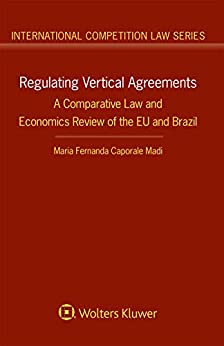Vertical agreements represent a variety of supply and distribution contracts involving different market players, such as suppliers of diverse inputs, manufacturers, distributors and retailers. They gain particular significance in a global economy where technological advances are dynamic and are changing all the time. Such agreements are signed among businesspeople on a daily basis, and antitrust experts around the world are often asked to advise on whether they have any negative impact on competition or whether they infringe antitrust law.
Taking into consideration the complex economic impacts of these vertical alliances, and the different market conditions that firms face in a wide variety of situations, the author proposes an in-depth examination of the following topics:
- resale price-fixing;
- geo-blocking clauses;
- exclusive and selective distribution systems;
- the concept of ‘economic efficiency’ in the context of vertical restraints;
- self-assessment of potential anticompetitive effects and antitrust risks;
- ex post control of vertical restraints;
- digital economies and its policy impact;
- alternative enforcement models under various institutional frameworks;
- the role and influence of political pressure groups.
The book offers very constructive theoretical and political insights at the frontier between the disciplines of Economics and Law. By comparing two world’s leading antitrust jurisdictions, this book explores the lessons to be learned from the legal rules in the European Union and in Brazil, considering their promises and drawbacks, and formulates policy recommendations.











